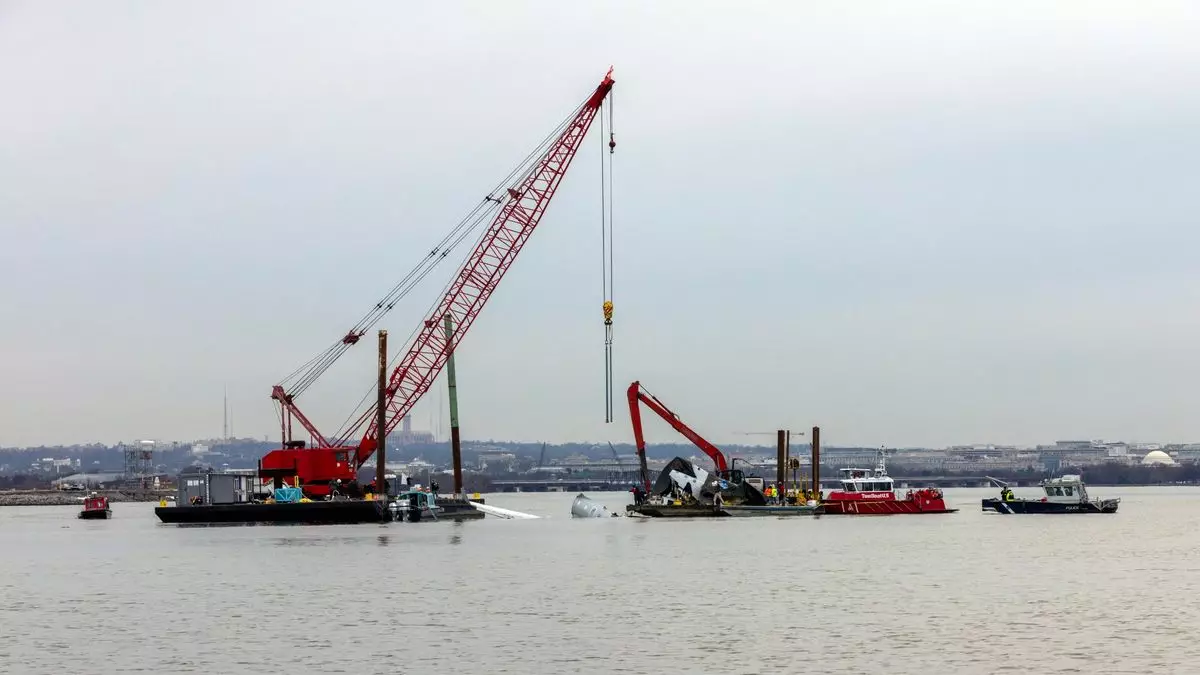In recent years, the National Transportation Safety Board (NTSB) has been widely regarded as an exemplar of investigative rigor, particularly in the context of air transportation incidents. However, the political landscape can complicate what should fundamentally be a fact-finding mission. The tragic collision between an American Airlines-branded regional jet and a U.S. Army Black Hawk helicopter on January 29, which resulted in the loss of 67 lives, has underscored how political commentary, especially from high-ranking officials, can overshadow the investigative process.
Following the harrowing accident, President Trump made headlines by speculating that the cause might be related to diversity, equity, and inclusion (DEI) initiatives affecting air traffic controller performance. Not only was this assertion made without supporting evidence, but it also inserted the President’s opinions into an ongoing investigation prematurely. Mark Jones, a political science professor, expressed concerns that Trump’s hasty statements risked politicizing the NTSB’s crucial work. For an agency that prides itself on uncovering the truth based on thorough investigations, such external pressure creates tension that could hinder its effectiveness.
The nature of Trump’s comments raises critical questions regarding the balance between political rhetoric and the integrity of an investigative body. He suggested that only “talented geniuses” could execute the complex duties of air traffic controllers, indirectly arguing that DEI programs might compromise safety. This public discourse can lead to a tainting of the investigative mindset at the NTSB, where their objectivity is paramount. The pressure to address the President’s claims could skew the focus of the investigation in unjustifiable ways.
Institutional Pressure and Accountability
Beyond just the immediate effects on the investigation, the implications of political oversight have a longer-lasting impact on the structure and function of the NTSB. David Clark, a political science expert, highlighted possible scenarios where the NTSB’s findings might contradict the President’s statements, leading to greater scrutiny from both Congress and the administration. If the NTSB were to conclude that DEI policies had no relevance to the incident, there could be ramifications in terms of budget approvals and broader political support for the agency.
The NTSB is designed to be an independent entity, a characteristic bolstered by its method of funding—bypassing direct financial dependency on the presidential administration. However, this does not exempt the agency from potential repercussions stemming from allies within Congress who may share the President’s viewpoints. A politically charged climate can create an atmosphere where the NTSB’s ability to operate free from bias is jeopardized.
In the face of early political speculation, the NTSB has made concerted efforts to emphasize its commitment to impartiality and fact-based investigation. According to NTSB board member J. Todd Inman, the agency leads its investigations with a dedication to uncovering facts, stating that they will adhere strictly to their investigative protocols. However, this assertion must be taken with caution. The surrounding political discourse can create a perceptual bias that could potentially lead to a misalignment in public trust.
NTSB chair Jennifer Homendy indirectly addressed the complexities of the situation when questioned about the potential harm incurred by presidential speculation. Her remarks suggest that the challenge may not solely stem from the President’s comments, but from the wider culture where conclusions are drawn prematurely by the media. This ethos, whether originating from governmental figures or the press, complicates the agency’s mission to remain strictly factual.
Historical Perspectives on Political Interference
The NTSB has historically been viewed as a beacon of non-partisan integrity within the federal structure. Critics like Peter Goelz, an NTSB managing director from the late 1990s, have warned that the erosion of this non-partisanship can undermine decades of progress in independent accident investigations. Instances of prior political interference — such as President Trump’s inaccurate remarks relating to Hurricane Dorian — provide precedents for potential administrative overreach that could detract from objective inquiry.
As public and private sectors evolve and grapple with issues of transparency and bias, the relationship between political influence and investigative integrity remains a pressing issue. Ultimately, it underscores the necessity for the NTSB to maintain its independence while navigating the realities of political interactions that can shape perceptions and potentially hinder its work. Maintaining trust in the system of air transportation safety relies not only on independent investigations but also on fostering an environment free from undue political influence.


Napsat komentář